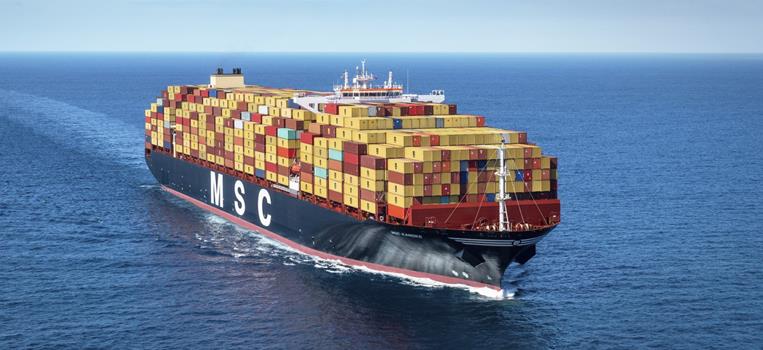East/West head haul capacity down 17% YoY in May, reveals eeSea data
Apr 23, 2020Global Trade Capacity for H1 2020 Already Cut by 12.9% YoY
New analysis conducted by maritime intelligence company eeSea has revealed the extent of the impact of COVID-19 on global container shipping capacity.
According to the latest data - updated daily - a total of 302 of 2,693 sailings, or 11%, have been cancelled in May on all the main line trades.
In the first six months of 2020, a total of 1,675 sailings have been cancelled, or 11%; which comes out at 13% for 2M, 17% for Ocean Alliance and 17% for THE Alliance, while only 8% of non-alliance sailings have been cancelled.
However, the number of sailings alone only tells part of the story. Commenting on the numbers, Simon Sundboell, CEO and Founder of eeSea, said:
“Understandably, ‘blank sailings’ are the talk of the town among container shipping and supply chain professionals these days. But to truly understand the impact, you need to look beyond the daily trickle of carrier advisories and the number of cancelled sailings. Instead, you need to look at the reduction of container shipping capacity and the pattern that is forming for the weeks and months ahead.”

Accounting for variations in vessel capacities between services, as well as taking into account entirely ceased services (beyond blanked voyages and temporarily suspended services), the resulting reductions in capacity offers a similar picture. However, the critical information is in the detail.
On, for example, the Far East - North America eastbound head haul (including Suez services), the actual deployed vs proforma capacity ratio, after blanks and suspensions, for May is 80% - almost as big a reduction as the February ratio of 71%. YoY (Year-on-Year), including discontinued services, the reduction in May is 21%.

eeSea produces these numbers globally, for all trades, services and carriers, down to a daily port departure level.
Says Simon Sundboell: “If I were a shipper in Asia or a buyer in Europe, this is the number that is critical to my business, including whether my shipments could be at risk; and how to plan contingencies.”
The other benchmark head haul trade, Far East to Europe westbound, shows similar capacity reductions. Details are outlined in the appendix below; of note, however, is that in June Ocean Alliance will overtake 2M as the largest alliance on the trade lane for the first time since Oct 2019.
Carriers and ports are likewise offered these numbers for benchmarking purposes.

“A lot is happening these days, and it can be hard to keep a tab on it. This is why we at eeSea track it all in real-time. We map blanked - or ‘void’ - sailings, as well as discontinued and suspended services, as soon as the announcements are made. Sometimes announcements aren’t made, so we also track the carriers’ schedules frequently and discover unannounced blank sailings.”
Per April 22, the status on the major trade routes is as follows:
FAR EAST - EUROPE HEAD HAUL (Med + Northern Europe)
- Far East to Europe westbound will see 14% of sailings, or 18 of 127 sailings, cancelled in April. This corresponds to a capacity reduction of 12%.
- This is down from 36% cancelled sailings in February, and 21% in March. Currently, 19% of sailings in May are already announced as cancelled, and 12% in June.
- THE Alliance has cancelled 22% of their April FEA-EUR sailings, and already cancelled a whopping 32% in May and 34% in June. 2M and Ocean Alliance are at respectively 12% and 10% in April, and 16% and 12% in May. However, it should be noted that Ocean Alliance cancelled 40% and 30% of FEA-EUR sailings in February and March.
- Over the six-month period from January to June, the alliances have cancelled 18% of FEA-EUR sailings, with Ocean Alliance at 17%, THE Alliance at 23% and 2M at 14%.
- With the currently announced capacity reductions, 2M will drop below Ocean Alliance in actual deployed capacity in June for the first time since Oct 2019.
- For the first half of 2020, the current announced reductions amount to a 17% YoY drop in deployed capacity, from 11.2m in 2019 H1 to 9.5m TEU in 2020 H1.
FAR EAST - NORTH AMERICA HEAD HAUL (East + West coasts, inc. Suez service)
Transpacific eastbound will see 234 of 249 sailings, or 14%, cancelled in April. This corresponds to a reduction in capacity of 13%.
This is still down from the 28% cancelled sailings in February. March saw 9% cancelled, and currently 20% of sailings in May are announced cancelled, and 15% in June.
THE Alliance has cancelled 19% of sailings on Transpacific eastbound in April. 2M and Ocean Alliance are at 16% and 11%, respectively.
However, over the six-month period from January to June, the 2M, Ocean and THE alliances have cancelled 18%, 12% and 19% of sailings respectively.
For the first half of 2020, the current announced reductions amount to a 16.5% YoY drop in deployed capacity, from 12.4m in 2019 H1 to 10.7m TEU in 2020 H1.
Similar Stories
FTR Reports U.S. trailer net orders in December at 25,334 units, the most since October 2023
Total trailer production declined 10% m/m in December to 11,827 units, a relatively typical seasonal drop. However, production was down 40% y/y – 43% below the five-year December average –…
View Article
2024 marks record air cargo year for Vienna Airport
View ArticleWorld Shipping Council: Shipping carriers move to prevent deadly charcoal fires
The shipping industry is taking proactive steps to implement improved safety measures for transporting charcoal, ahead of mandatory IMO regulations in 2026.
View Article
WorldACD Weekly Air Cargo Trends (week 2) - 2025
View Article
MSC Announcement: GRI - General Rate Increase Feb 2025
View Article
Drewry’s World Container Index - 16 Jan
View ArticleGet the most up-to-date trending news!
SubscribeIndustry updates and weekly newsletter direct to your inbox!





